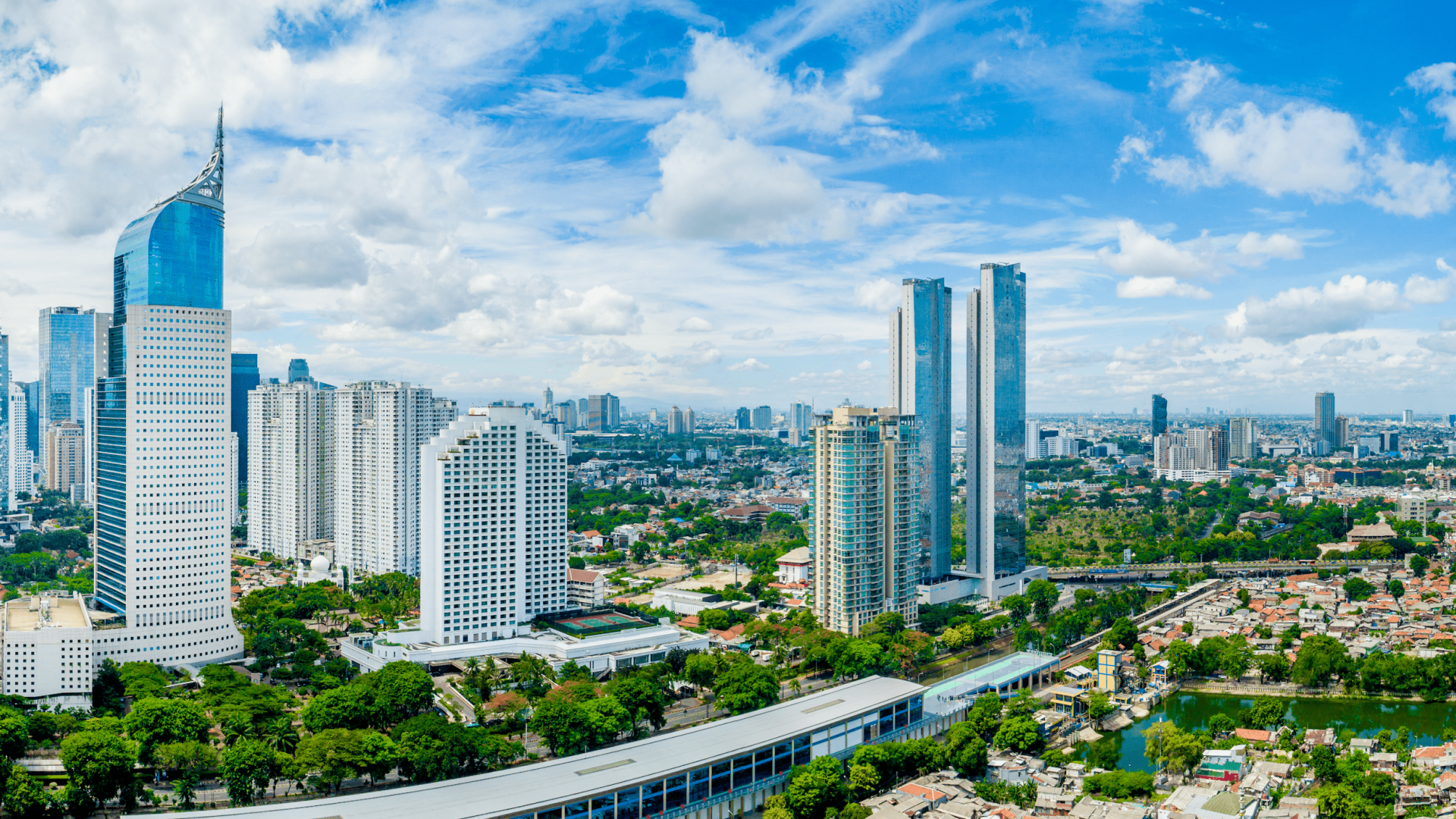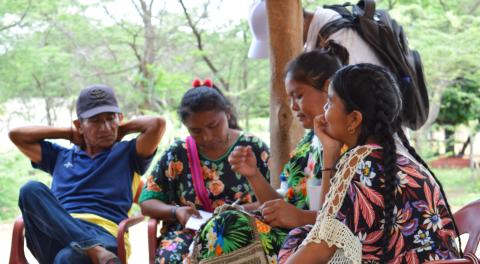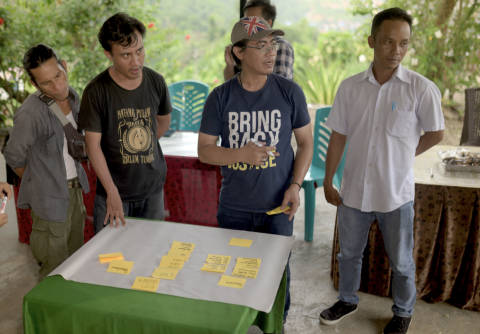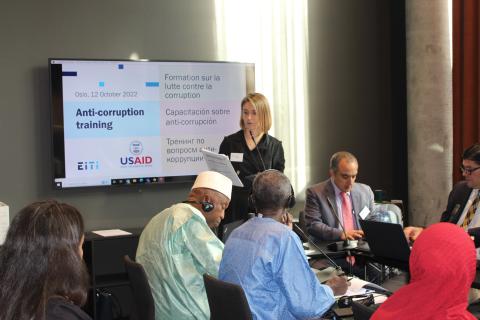
Indonesia
Overview and role of the EITI
Indonesia is a producer of minerals, oil and gas. Its mineral and coal sector accounted for 6.2% of the country’s GDP in 2021, while oil and gas accounted for 2.72% of GDP. The extractive sector has been an important source of revenue for both the central and provincial governments, and the COVID-19 outbreak and ensuing oil price collapse caused a considerable decline in income. The sector experienced a rebound in 2021, when government tax revenues from oil and gas increased by 59.99% against the backdrop of higher oil prices amid the COVID-19 recovery. As a leading producer of critical minerals to the energy transition, accounting for 36% of global nickel production and 23% of global tin production, the development of nickel refining and value-add industries is a strategic objective of Indonesia.
Public debates about Indonesia’s extractive sector have centered around the environmental impacts of mining, cost recovery in oil and gas production-sharing contracts (PSCs), crude oil trading, subnational transfers and social expenditures. There have also been issues around overlapping licenses, as well as gaps in tax administration and systems for corporate registration which have led to losses of potential revenues.
Given Indonesia’s highly decentralised governance systems, EITI implementation is helping to improve coordination between various government agencies, enabling better and more disaggregated disclosures on areas such as on licensing, social expenditures and subnational transfers. It is also serving as a platform for dialogue between industry, government and civil society.
Economic contribution of the extractive industries
- 8.2%
- to government revenues
- 8.98%
- to GDP
- 28.39%
- to exports
- 1.2%
- to employment
News, blogs and more


Involucrar a las comunidades en una transición justa: Morowali del Norte, Indonesia

Cómo se está utilizando el EITI para combatir la corrupción

Tres continentes, cinco proyectos, un objetivo: mejorar la transparencia de las industrias extractivas
Innovations and policy reforms
- As part of its data mainstreaming strategic objectives and broader e-government reforms, Indonesia launched an Extractive Data Portal in 2023. In its first phase, data related to ten EITI requirements was made available on the portal with plans to broaden the scope of data included.
- Indonesia has taken steps to make sector information accessible through routine disclosures on online platforms such as a license portal, an e-tender portal, ESDM One Map, a corporate register and a geospatial portal. Indonesia is the second EITI country to implement partial mainstreaming with the objective of moving towards full systematic disclosure of EITI data.
- In 2018, EITI Indonesia published its first commodity trading report which examined the entire value chain from production to trading as well as crude oil pricing, tendering processes for traders and policy gaps.
- Indonesia’s EITI Reports have helped clarify financial flows between companies and central and subnational governments.
- EITI reporting has helped identify opportunities for reforms in government oversight of state-owned enterprises and their accountability to the broader public, at a time when the government is restructuring its interest in the mining sector.
We want to inform our citizens on the impact of the pandemic on the sector as well as policies introduced by our government in handling COVID-19 and restoring the national economy. It is our hope that the experience with flexible reporting will support our broader efforts to transition towards systematic disclosure in line with our e-governance reforms.
Extractive sector data
Commodity production
Revenue collection
Revenue distribution
Revenue disbursement
Extractive sector management
Tax and legal framework
The governance of Indonesia’s extractive sector is rooted in the 1945 Constitution, which establishes that natural resources are controlled by the state and “used for the people's greatest prosperity”. The petroleum sector is mainly governed by the 2001 Oil and Gas Law, while the mineral and coal sector is mainly governed by the 2009 Mining Law, which was amended in 2020.
The General Directorate of Tax of the Ministry of Finance is the main body responsible for collecting taxes paid to central government, while the General Directorate of Mineral and Coal and the General Directorate of Oil and Gas of the Ministry of Energy and Mineral Resources collect sector levies for mining and oil and gas respectively. Provincial and district governments are responsible for collecting subnational revenues.
The main levies on the oil and gas sector are first tranche petroleum, domestic market obligations, corporate income tax and equity splits, while the main levies in mining are corporate income tax and royalties.
License and contracts
Oil and gas production sharing contracts (PSCs) are awarded through an open and competitive bidding process administered by the Ministry of Energy and Mineral Resources. Up until 2014, mining licenses were awarded on a first come, first served basis for Mining Business Permit Areas (IUPs). Since 2020, the responsibility for awarding IUPs has been transferred from provincial governments to the central government. Currently, mining licenses are offered first to state-owned enterprises which, if refused, subsequently undergo a competitive tender process.
Extractive contracts are not disclosed, however some extractive contracts can be accessed on the Resource Contracts portal. The government is making efforts to publish a list of active mining licenses (through Minerba One Data Indonesia) and oil and gas contracts (through Energy and Mineral Resources One Map).
Beneficial ownership
In 2018, the government issued a presidential regulation and decree requiring companies to report their beneficial owners to the Ministry of Law, through the company register and in connection with their license application procedures. Beneficial ownership disclosure is also part of the 2018 National Strategy to Prevent Corruption.
EITI Indonesia, under the Coordinating Ministry of Economic Affairs, leads outreach activities with extractive companies and piloted data collection for the 2018 EITI Report. The Ministry of Law and Human Rights revised its Legal Entity Administration System to include beneficial ownership information in accordance with the presidential decree. Nonetheless, the register has certain restrictions on public access to beneficial ownership information.
In 2017, the Indonesian government hosted the EITI Beneficial Ownership Global Conference.
In 2021, Indonesia became a participating country in Opening Extractives, a global five-year programme delivered by the EITI and Open Ownership to strengthen the availability and use of beneficial ownership data. In 2023, license authority representatives took part in a workshop to increase their understanding of the challenges of beneficial ownership data collection and identify ways beneficial ownership data use could be improved in license screening and approval. The country also took part in a global exchange to learn best practices on this subject.
Revenue distribution
Regional governments in Indonesia are entitled to a 15% of petroleum and 30% share of natural gas revenues, as well as 16% of mining royalties and fees. The allocations are structured according to formulas of the Natural Resource Profit-Sharing Funds (DBH SDA), which are earmarked for specific uses.
Due to the significant decrease in extractive revenues flowing to the central government during the COVID-19 pandemic, subnational governments saw a sharp decline in their share of revenues, amounting to or 54% of the initial oil and gas allocation target and 81% of the initial mineral and coal allocation target. According to the 2018 EITI Report, disbursements for the second and third quarters were allocated under the condition that regional governments document how resource revenues are used to tackle the COVID-19 crisis.
EITI implementation
Governance
EITI Indonesia is administered by the Indonesia Multi-Stakeholder Group (MSG), which is hosted by the Ministry of Energy and Mineral Resources (ESDM). The MSG is currently chaired by Mr Akhmad Syakhroza , Natural Resource Economics Advisor to the Minister of Energy and Mineral Resources, and consists of representatives from government, industry and civil society.
Timeline
Government announces commitment to join the EITI
Multi-stakeholder group is formed
Candidature application is submitted
Indonesia joins
Indonesia joins EITI
2009 EITI Report published
Report
Validation
Validation report
2012-2013 EITI Report published
Report
2014 EITI Report published
Report
2015 EITI Report published
Report
2016 EITI Report published
Report
Validation
2017 EITI Report published
Report
2018 EITI Report published
Report
2019-2020 EITI Report published
Report
2021 EITI Report published
Report
Validation
Indonesia was found to have made meaningful progress in implementing the 2016 EITI Standard in December 2019, following its first Validation. The Validation identified 22 corrective actions to be addressed by the country’s next Validation, expected to commence in January 2024.





